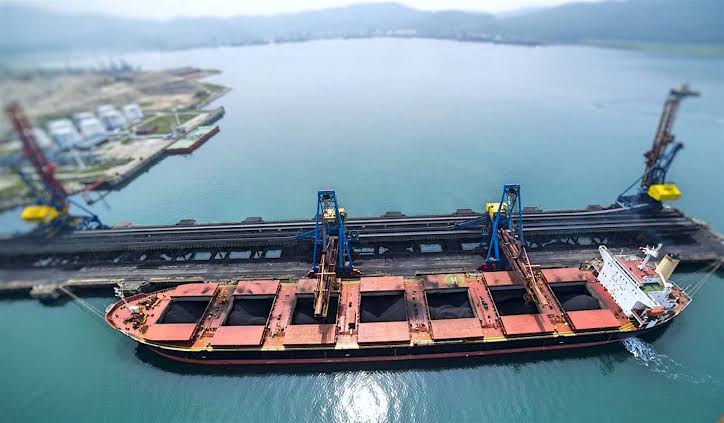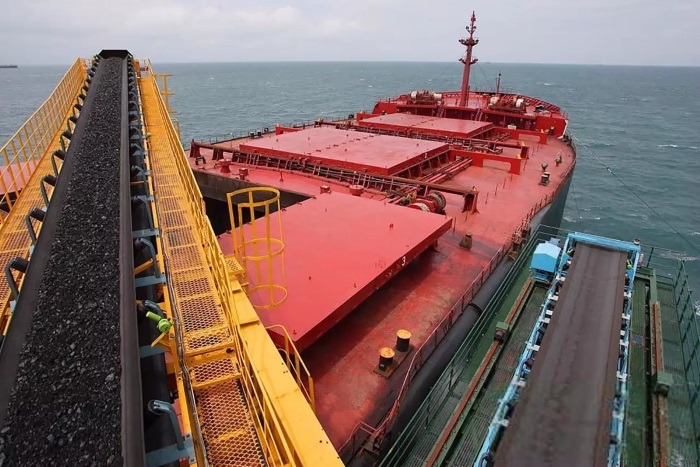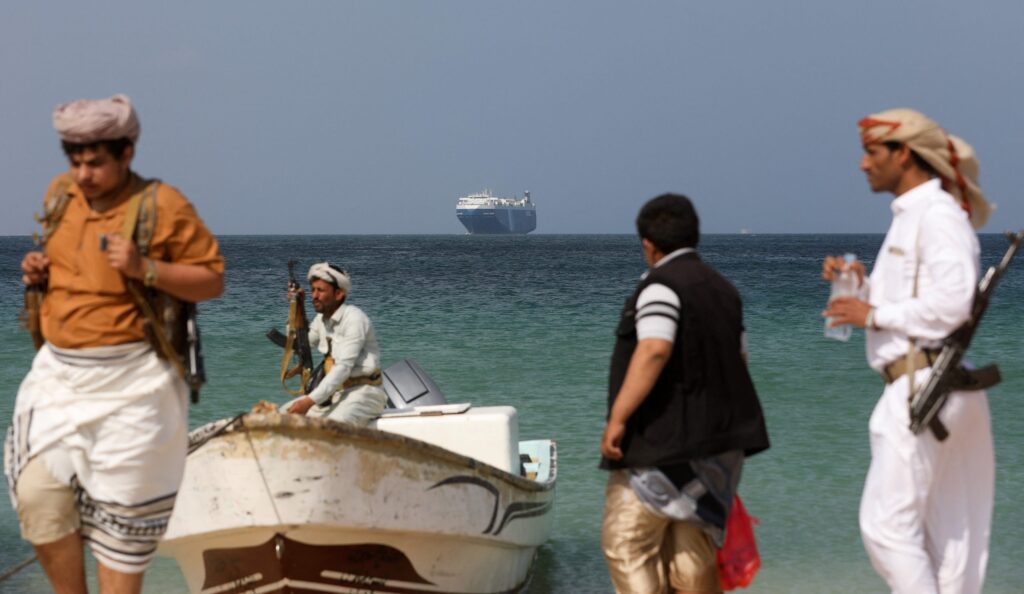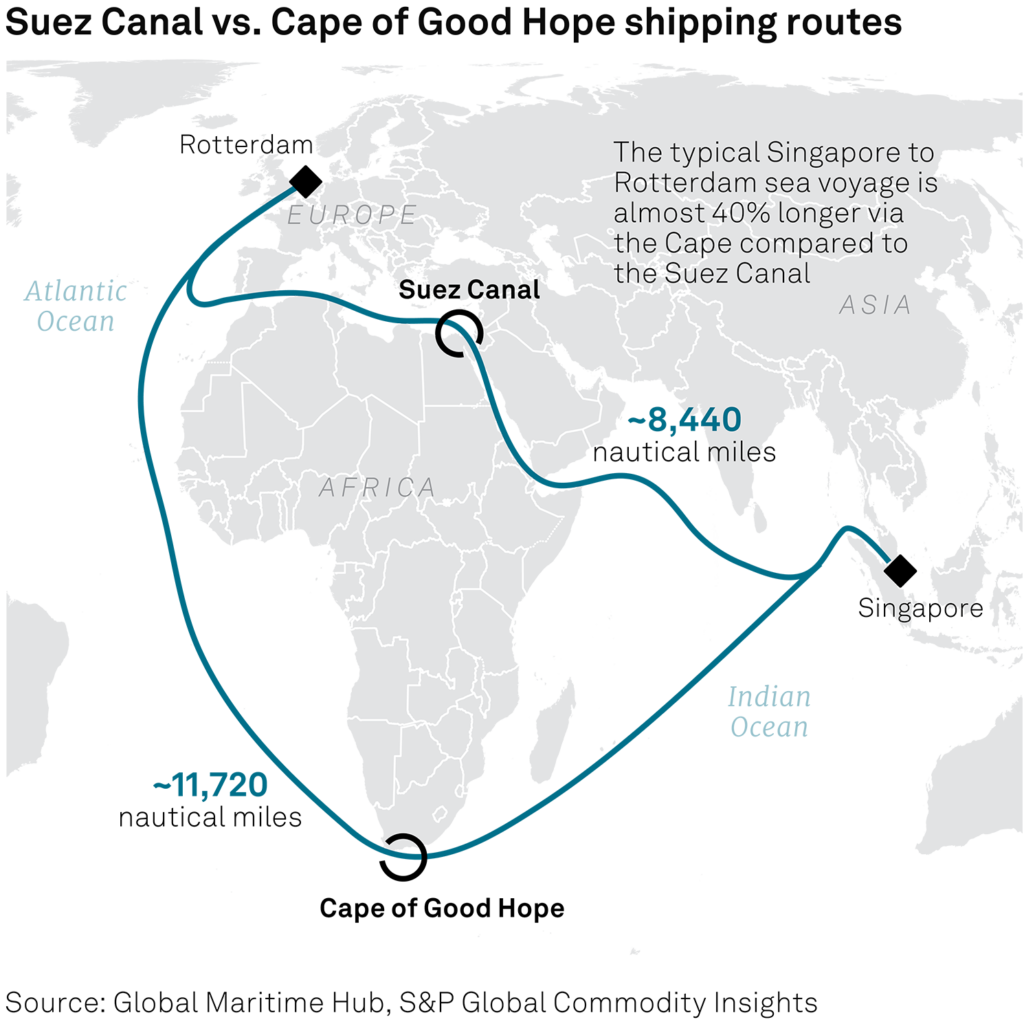Yemen’s Houthi rebels have warned the US and all other member countries of a newly formed maritime security force in the Red Sea that they will become legitimate targets if they interfere in its ongoing operations against Israel-linked vessels in the key waterway.
“Whoever seeks to expand the conflict must bear the consequences of their actions,” Mohammed Abdulsalam, a spokesman for the group, said on social media platform X, formerly Twitter.
US defence secretary Lloyd Austin announced the formation of the Operation Prosperity Guardian task force on 18 December, saying that the recent escalation in Houthi attacks on shipping in the Red Sea “demands collective action”.
The task force brings together countries including the UK, Bahrain, Canada, France, Italy, the Netherlands, the Seychelles, Norway and Spain to address security challenges in the southern Red Sea and Gulf of Aden, Austin said. It will be managed by Task Force 153, which is one of five task forces under the existing Combined Maritime Forces, a 39-nation naval partnership, and focuses on security in the Red Sea.
“The American-led coalition has been formed to protect Israel and militarize the sea without any justification,” Abdulsalam said, vowing that it would not stop the Houthis from “continuing their legitimate operations in support of Gaza”.
The Red Sea is one of the world’s busiest shipping channels because of its position at the southern entrance of the Suez Canal. Exporting crude and products through the waterway is now fraught with security risks thanks to the Houthis, who have vowed retribution against Israel for its treatment of Gaza’s Palestinian population by launching attacks on vessels they claim have links with Israel.
The Houthis began targeting Israeli-linked vessels in the Red Sea last month. The UK Marine Trade Operations (UKMTO) issued four alerts on 18 December about attacks south of Yemen’s port of Mokha in the vicinity of the Bab el-Mandeb strait, which links the Red Sea to the Gulf of Aden.
The US Central Command (CentCom) said today that there had been two Houthi militant attacks against commercial shipping on 18 December in the southern Red Sea ꟷ on the Swan Atlantic and the Clara. Earlier today, the UKMTO issued a new alert warning of a “suspicious approach” by four small boats to an unnamed vessel.
The latest spate of attacks has led BP to suspend tanker traffic through the Red Sea. Danish shipping giant Moller-Maersk and Germany-based containership operator Hapag-Lloyd said last week that they would suspend all vessel passages through the Red Sea, the former until further notice, and the latter until 18 December.
Conspicuous absence
Following the announcement of the new task force, the US defence secretary told a virtual meeting of senior representatives from 43 countries that the Houthi attacks on shipping “had already impacted the global economy, and would continue to threaten commercial shipping if the international community did not come together address the issue collectively”.
The Houthis have conducted over 100 drone and ballistic missile attacks in recent weeks, targeting 10 merchant vessels linked to more than 35 different countries, making the formation of international coalitions critical to maintaining the security of shipping in the region, according to Austin.
But while the US was able to draft nine other countries into the new task force, it did not manage to secure participation of either of its two main Mideast Gulf allies ꟷ Saudi Arabia or the UAE ꟷ which have both been the target of Houthi attacks in recent years.
Senior Houthi official Mohammed al-Bukhaiti warned in an interview with the France 24 TV channel earlier this month that if Saudi Arabia or the UAE are “part of any coalition for aggression against Yemen… we will target every oil or gas field in Saudi Arabia and the UAE and we will target all the ships transporting oil”.
Key Asian shipping and commodity firms are reviewing their Red Sea transit strategies due to escalating risks. Japan’s Mitsui OSK Lines and NYK Line, along with South Korea’s HMM, are either diverting ships from the Red Sea or considering alternative routes like the Cape of Good Hope. Hong Kong’s OOCL has suspended cargo acceptance to and from Israel. Trafigura and other commodity firms are on high alert, closely monitoring the situation. These developments, including the rerouting of vessels and heightened security measures, are in response to potential attacks on ships in the region. The situation has not significantly impacted freight rates yet, but an escalation could affect shipping, especially for key commodities like agriculture, phosphate, and fertilizers.




